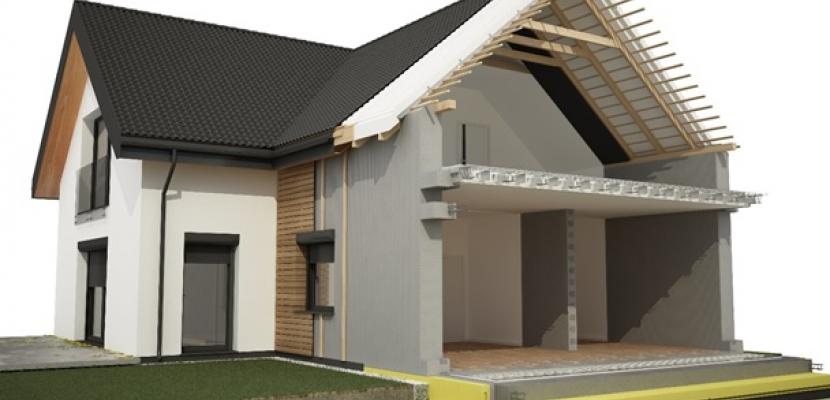Image

LCA in reducing CO2 emissions in the production of building components
Published on 02 March 2021

Poland
This is the good practice's implementation level. It can be national, regional or local.
About this good practice
Producer deals with construction forms. It is based in Lodzkie, Poland The company offers a complete system of elements for construction of energy-saving and passive houses (foundations, walls, roofs). Elements produced by company are placed into the building and shape its durability and energy consumption affecting the environmental effect. They commissioned an LCA analysis for its products. The study aimed to determine and compare the carbon footprint of buildings constructed in traditional and new technologies at the stage of material production, transport and construction, use. LCA analysis was carried out in accordance with ISO 14040; PN EN ISO 10211: 2008 and PN-EN ISO 10456: 2009. The study showed lower emissions CO2 of the house in advanced technology by up to 56%. The company’s original concept and performance passive house is almost twice as ecological (due to 44% less emissions). Building insulation ensures lower energy costs and reduced CO2 emissions during exploitation. The analysis also showed the need to replace the machine park with a more energy-efficient one and provide non-coal energy sources. The raw materials used for the production of elements are 100% recyclable. The raw (mono)material (e.g expanded polystyrene) are approved for the production of food packaging after proper recycling processing. Beneficiaries of this practice are people using houses in efficient technology, companies participating in tenders using its components and the company itself.
Resources needed
In 2014 (average market cost) of the LCA analysis was about 1100€ (it is now more than 11300€) due to increasing demand for expert work. One expert was involved in the LCA analysis. The adaptation to low-carbon production amounted to about 220000€, which was largely achieved through LCA expertise.
Evidence of success
The LCA analysis has shown CO2 56% lower emission - compared to the traditional construction. New technology allows to save up to 90% of energy needed to heat and cool the house. Over 19000 buildings constructed with more efficient technology means 7.5 million less CO2 and 200000 tonnes less energy consumption. The LCA study became the basis for improving the technology. The company has been producing polystyrene profiles for more than 20 years for eastern markets, EU, UAE, Morocco.
Potential for learning or transfer
The potential of the practice is the positive impact on the environment in the region, building public awareness for the use of LCA. The Company, with the help of LCA, has developed an energy-efficient and sustainable building technology. This can allow the design of building products and processes comparing different scenarios, as well as reporting environmental effects. Although this practice started in 2014, it has not significantly influenced the region's policies so far, participation in the LCA4Regions project can spur the identification of good practices and policy change. The region intends to widely promote LCA-based solutions and develop methods to support these innovations. In addition, thanks to the new public procurement law in Poland, effective from 2021, the public sector has gained wider opportunities to consider life cycle and environmental criteria in regional policies. Therefore, we expect to see the development and promotion of LCA implementations in the coming year
Further information
Website
Good practice owner
You can contact the good practice owner below for more detailed information.
Organisation
Lodzkie Region Regional Policy Department

Poland
Contact
Inspector